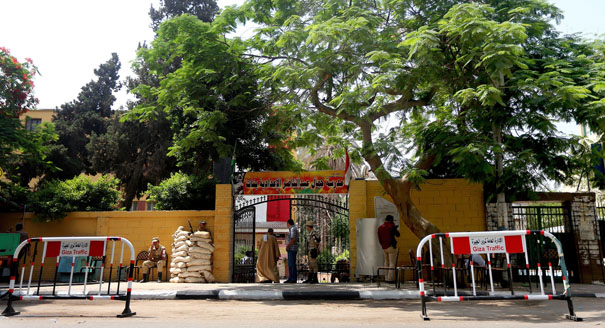Having eliminated all serious opponents for his reelection bid, President Abdel-Fattah al-Sisi was effectively running against his own declared popularity. A first round of Egypt’s presidential election was held on March 26–28, in which Sisi won a landslide victory with 97 percent of all valid ballots and an alleged turnout of 41 percent. How can observers assess the number of Egyptians who supported Sisi during the virtually uncontested election? How does it measure up against previous elections? And does anyone in Egypt care?
Voters, oddly rational beings, generally only go to the polls when they either believe that their votes make a difference or someone has mobilized them to turn out. Clearly, only the second rationale applied in this case. So, if love of Sisi alone was not enough to mobilize Egyptians, the regime had to create other inducements. Through handouts in the form of cash payments, food, and even Umrah pilgrimage trips, Egyptian voters received direct incentives to go to the polls, in addition to urging from state-run media and employers.
As a disincentive, the National Electoral Authority announced that it would work to enforce a EGP500 fine for abstaining from voting, with reports of a pickup truck with a loudspeaker driving around and notifying people that the fine would be added to one’s electricity bill. The central government also pushed the responsibility of ensuring voter turnout down to the local level. In one province, the governor announced that more than $100,000 in services would be awarded to the three districts with the highest turnout, while another offered $28,000 in projects.
In addition, it seems the regime was busy creating at least the appearance of citizen enthusiasm, even if it could not rally impressive numbers. Small-scale rallies outside nearly empty polling stations—intended to create a sense of commotion or activity, whether or not voters actually showed up—were also reportedly widespread and garnered the hoped-for admiration of at least some foreigners.
Assessing actual turnout in this election, in which there was no credible and independent domestic monitoring effort, is a matter of holding up the figures announced by the electoral commission against what little journalists were able to see, as well as what has been typical in Egypt.
The only Egyptian presidential election for which voter turnout was well established was the 2012 election, in which turnout was 46 percent in the first round and 52 percent in the second round. Domestic and international civil society groups monitored those elections extensively, and then-candidate Mohammed Morsi’s Freedom and Justice Party even did a full parallel count of the second round. In Sisi’s first election in 2014, in which monitoring was far less robust, the announced turnout was 47 percent, giving him a reported 24 million votes. (Hosni Mubarak, more modest than Sisi in many ways, contented himself by announcing a mere 23 percent turnout in his only contested election, in 2005).
In the election that just took place, with an announced turnout of 41 percent, here’s how the numbers worked out: The electoral commission announced that there were 59,780,138 registered voters and that 24,254,152 of those eligible voted. Given that there were 13,706 polling stations, the average polling station had 1,770 voters. With polls open an incredible total of 37 hours over three days, there were allegedly an average of 48 voters processed at each station each hour—and of course far more than that in urban areas. The meager presence of voters that journalists observed in most places does not seem to corroborate these numbers.
And so, despite the publicly announced turnout, the blame game might start inside the Sisi camp of who failed to deliver the proper turnout. Already some of his supporters are saying that he made a mistake by not forming a political party to replace the disbanded National Democratic Party that could mobilize voters. In fact it is a bit surprising that the president did not learn that lesson after the scramble of his 2014 election.
Does any of this matter? Probably not for many Egyptians. But those who encouraged or backed the surprising appearance of alternatives to Sisi in the run-up to the election, as well as his foreign patrons, are undoubtedly observing the scene to see just how vigorous and effective his regime is when it comes time to mobilize the public behind a goal.
* This article has been updated to reflect the official release of election figures by Egypt’s election commission.








